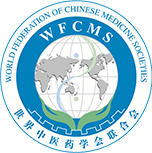China strengthening patent protections for TCM

China has taken measures to strengthen intellectual property protection concerning traditional Chinese medicines in a bid to promote inheritance, development and innovation, an official from the country's top IP regulator said.
"We've attached greater importance to protecting patents involving TCM over the past few years to meet the central leadership's requirements of advancing high-quality growth in the field and bringing TCM to the world," said Song Jiangxiu from the biomedical invention review department with the China National Intellectual Property Administration.
She made the remark at the third Annual Conference of the Working Committee of Intellectual Property Protection with the World Federation of Chinese Medicine Societies, which was held in Beijing on Tuesday.
She said that the administration has optimized its review guidelines by adding a chapter for TCM invention patents.
"We've finished soliciting opinions on a draft of the optimized guideline and will make it public as soon as possible," she added.
Regarding the small number of authorized TCM patents, she said that it is a challenge for the administration to review relevant applications, "as a large number of applicants were individuals, who found it difficult to interpret what technical contributions their inventions had made, let alone write them down on a document in a professional manner," she explained.
It is hard to approve such non-standard application documents in line with international rules of patent review, she added.
Compared with Western medicines, TCM is difficult to standardize, so rapidly growing patent or trademark applications across the country are not frequently seen, according to Kang Lixia, an IP lawyer from Beijing's Hanray Law Firm who is also an executive director of the committee.
While calling for people engaged in the TCM industry to focus more on how to promote its development through IP application, Li Xiaowu, a senior legal research fellow at iCourt, a technology enterprise focused on judicial data research, said that it is also necessary for IP specialists to enrich their knowledge of TCM to figure out what is most needed in this field.
"Only in this way will both fields — IP and TCM — better support each other, and both will see stronger development," he said.
In recent years, multiple national strategies, policies, laws and regulations have concentrated on TCM.
In January 2017, for example, the TCM Law took effective, highlighting the significance of IP protection in the area. It also states that the country supports TCM research and encourages transformation of TCM scientific and technological achievements.
Some 80 guests, including law professors and IP experts as well as those from biomedical and technology enterprises, attended the annual conference, with exchanges of ideas on how to apply IP to promote high-quality growth of TCM.

